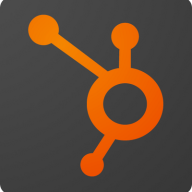

HubSpot CRM and Salesforce Essentials compete in the CRM category. HubSpot appears to have the upper hand for small businesses due to its affordability and ease of use, while Salesforce offers a broader feature set for businesses with complex needs.
Features: HubSpot CRM is known for its strong integration capabilities, particularly with email systems, and a suite of marketing tools that includes automated sales sequences and lead tracking. Salesforce Essentials is recognized for powerful AI capabilities, finance and order management, and its ability to handle complex business processes.
Room for Improvement: HubSpot CRM needs improvement in email capabilities, offers limited customization at lower licensing levels, and requires better duplicate removal processes. Salesforce Essentials would benefit from enhanced integration with systems like SAP, improvements in AI functionalities, and more flexible pricing packages for smaller teams.
Ease of Deployment and Customer Service: Both products are available through Public Cloud deployment. HubSpot is praised for its responsive technical support and community resources, while Salesforce's support experiences vary, with some users finding it less proactive.
Pricing and ROI: HubSpot CRM provides a free version and offers modular pricing, making it generally affordable for small businesses. Salesforce Essentials is considered expensive, with high licensing costs noted as a disadvantage. HubSpot presents a more budget-friendly option, though both report favorable ROI outcomes from their use.
There is always an account rep that's available, and there is a technical account rep that is available for every account.
HubSpot's customer service is excellent and fast.
Part of it is different language use, and while that's okay, it wasn't immediately evident where to find help, verify, or submit a question and get responses.
Salesforce Essentials has excellent customer service.
There are a lot of enterprises using it, however, even as a GTM for HubSpot, their target market is predominantly SMB.
Handling around 100 to 150 users is fine.
Salesforce Essentials has proven stable, with no downtime that affects my work.
A package covering everything in a particular area without requiring the entire purchase would be excellent.
A better CRM can be achieved by providing more customization features.
They are not at the pace or effectiveness of AgentForce by Salesforce.
There are other competitors, like Zoho CRM, that offer similar features at a lower cost.
The costs associated with Salesforce Essentials are substantial, which is a drawback compared to competitors who offer similar services for less.
HubSpot stands out for its ease of use, especially with sequence creation compared to other CRM solutions.
All the automation features, where I can completely automate a cadence like emailing, lead scoring, and lead qualification, everything can be automated, including all workflows.
The feature that I find valuable is the customer 360-degree view and the marketing automation.
Salesforce Essentials is excellent because it is one of the most flexible CRMs available.


HubSpot CRM is a comprehensive customer relationship management software that helps businesses manage their sales, marketing, and customer service activities. It offers a wide range of features, including contact management, email tracking, deal tracking, and task management.
With its intuitive interface and easy-to-use tools, HubSpot CRM allows users to streamline their sales processes, track customer interactions, and improve overall productivity. It also integrates seamlessly with other HubSpot products, such as marketing automation and customer service, providing a complete solution for businesses of all sizes.
Whether you're a small startup or a large enterprise, HubSpot CRM can help you organize and grow your customer relationships.
Salesforce Essentials is a cloud-based CRM tool for businesses seeking flexible, scalable, and customizable solutions to enhance sales and customer support processes.
Designed for seamless integration across multiple channels, Salesforce Essentials includes Sales and Service Cloud to simplify sales tasks and customer management. It enhances finance, credit, and quality processes with user-friendly AI capabilities and predictive analytics. Despite its strengths, there is room for improvement in SAP integration, interface simplicity, and report generation. Cost-effectiveness and support for diverse languages are also potential upgrade areas. Businesses use this CRM solution for lead management, opportunity tracking, and automating sales workflows, transitioning from paper-based methods to digital efficiency.
What are the essential features of Salesforce Essentials?In the retail industry, businesses employ Salesforce Essentials for customer data management and transparency in order processing. Healthcare providers use it for patient engagement and streamlined communication. Financial services utilize it for billing management and compliance, harnessing automation tools for efficient data handling.
We monitor all CRM reviews to prevent fraudulent reviews and keep review quality high. We do not post reviews by company employees or direct competitors. We validate each review for authenticity via cross-reference with LinkedIn, and personal follow-up with the reviewer when necessary.